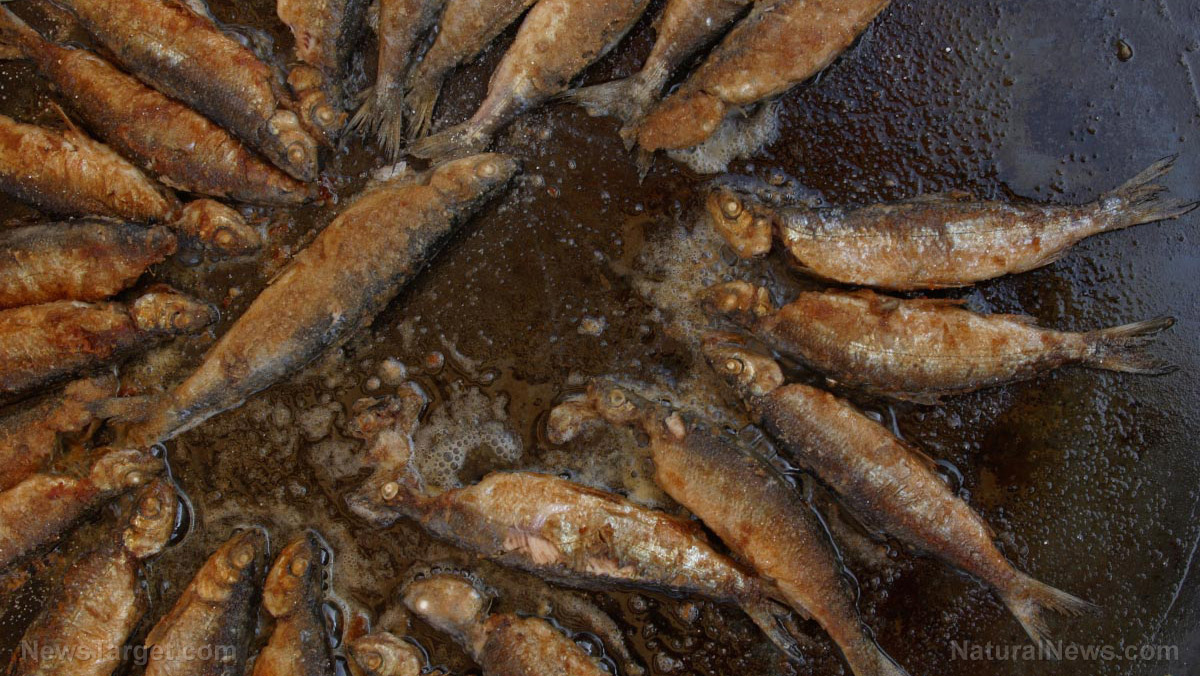
ANIMAL DIE-OFFS escalate: Alaskan cod populations are plummeting and Australian beaches are littered with dead seabirds
Lance D Johnson

In November 2019, thousands of short-tailed shear water birds washed up dead on the beautiful beaches of Sydney, Australia. The locals are accustomed to seeing beautiful sea birds arrive this time of year in healthy flocks; the locals did not expect thousands of foul birds to wash up dead on the shore. Food webs are breaking down under the strain of globalization.
The conveniences offered by globalization strain regional resources and ravage the food web
It’s Friday and you’re sitting down for dinner at the nearest Red Lobster. You peruse the menu for some fresh seafood. Eyeing the pictures, you decide to order baked cod fish, seasoned with parmesan and tomatoes. You’re just another person living in the middle of the country, treating yourself after a long week of work. You don’t think twice about where the food comes from, how it got here. You don’t consider all the steps required to conveniently place “fresh seafood” on your plate tonight. You just order it and expect it to be there – just the way you like it.
When populations in every corner of the world have the power to demand a resource from select regions of the world, the very survival of these natural resources are strained over time. The conveniences that human populations demand from any point on the globe threatens the sustainability of natural resources in select regions. When these natural resources are strained or driven to scarcity, a ripple effect is felt throughout the food chain and the environment.
Food webs may survive natural changes in climate but will collapse to human greed
A federal cod fishery in the Gulf of Alaska is closing in 2020 because there are historically low numbers of Pacific cod in the region. Alaskan cod is over-fished, its populations depleted after many years of keeping up with global demand. NOAA research biologist Steve Barbeaux reports that there are “next to no” new eggs of Gulf cod. The Fall 2019 stock assessment shows record low cod populations.
Over the past five years, cod numbers have fallen drastically. In 2014, 113,830 metric tons were pulled from the Pacific, but in 2017, there were only 68,000 metric tons fished from the region. Their population has been reduced by half. Oceanic temperature records indicate that heat waves in the ocean are affecting cod populations. Where do these Pacific Ocean heat blobs come from? The NOAA has measured 4-5 degree differences in oceanic temperature when the heat blobs arrive to the region.
The populations are also affected by rainfall amounts. When rainfall is low, the fish are more prone to die-off during the pre-spawning period. These low flows cause late migration into the streams and ultimately early suffocation and death. Without the rain, tide pools dry up and the fish aren’t able to return to the bay. According to the Prince William Sound Science Center, the dead fish count in one stream included “30,000 dead pink salmon” in just the first ten days of September. “Our field crews estimated 10,000 died over a single night. We have never documented anything like that in the past.”
The fish shortage in the Pacific Ocean is significant because it has a ripple effect across the food web. The thousands of short tailed shear water birds that washed up dead on the Australian beaches were the result of incredible fish shortages in the Pacific. After spending the summer in Alaska, these birds typically migrate south to breed. The birds can only survive the 14,000 kilometer trip across the Pacific if there is enough fish to feed on during the journey. Instead of arriving as flocks of healthy birds, thousands of shear water bird corpses washed up on the shorelines of Bondi, Manly and Cronulla.
While it is impossible to control rainfall amounts and predict how heat will distribute throughout the oceans, the fish and bird die-offs are symptoms of greater problems yet to come. Because human populations are so dependent on the conveniences of globalization, many people will not be able to adapt when regional food webs collapse. The conveniences that humans desire and the unsustainable greed of globalization, will ultimately lead to starvation for many.
Sources include:
https://www.naturalnews.com/2019-12-17-alaskan-cod-populations-are-plummeting-dead-seabirds.html
